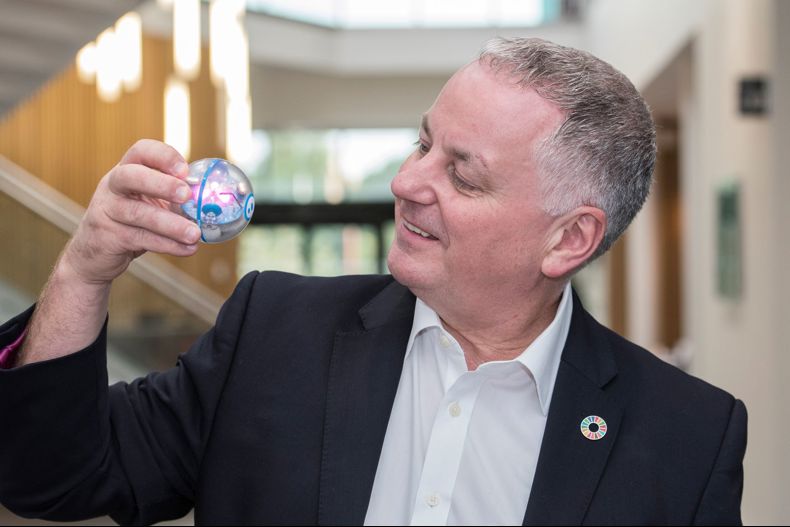Blog: Supporting STEM Education in the Scottish Highlands for all our Futures
12 Jan 2022
By Lord Jack McConnell, Chair of the SSE Renewables’ Highland Sustainable Development Fund
Building skills in science, technology, engineering, and maths (STEM) is vital to the future of the Highlands and Islands economy. STEM based occupations are predicted to grow as the work of the future changes. However, employers often experience skills gaps because the number of students choosing STEM programmes does not meet the demands of the sector. Students can view science, technology, and maths as ‘harder’ than other choices, so educators have a challenge in inspiring young people to take up STEM subjects.
As an institution delivering work-based learning, college and university level education, the University of the Highlands and Islands partnership takes a holistic approach to promoting STEM. It addresses the whole education pipeline to achieve effective change, to increase awareness, to influence aspirations and to tackle the lack of diversity in terms of gender, ethnicity, and rurality in STEM professions.
Their engagement approach ranges from early years education and family activities like the Inverness Science Festival; supporting teachers to increase their confidence in teaching STEM subjects; and further and higher education courses, including postgraduate, doctoral and postdoctoral training, research and knowledge exchange.
UHI’s approach to developing a strong, skilled STEM workforce is to collaborate with the various organisations which are engaged in STEM activities across the region. Their STEM strategy encompasses digital technologies, computing and healthcare.
The UHI STEM team was created to increase STEM engagement among school pupils and we were so pleased to make this possible through grant funding support from our Highland Sustainable Development Fund.
Over a period of six years, UHI received £550,000 which enabled them to develop outreach activities across the Highlands, whilst building teacher confidence when delivering STEM activities.
Around 75% of Highland Council schools participated in UHI’s STEM project, with over 600 teachers and an estimated 16,000 pupils taking part.
Our partnership allowed UHI to provide in-depth engagement with schools and take a whole school approach which aimed to engage multiple teachers and build STEM capacity and confidence.
The project aligned with the SSE Renewables fund’s key theme of creating opportunities for education and employment through projects that develop skills and improve an individual’s chance of entering the workplace.
UHI’s STEM project was recently independently evaluated by the specialist economic development and regeneration consultancy, Ekosgen.
The evaluation confirmed the effectiveness and reach of the project. The report identified that UHI’s mode of delivery was well-suited to the Highland context, particularly among rural and remote schools, and that it was able to continue (in a somewhat reduced capacity) throughout the pandemic.
Ekosgen’s report also showed that the outreach approach adopted by UHI has helped to lower barriers to engagement in STEM education and training and generated more peer-to-peer knowledge.
As a result, UHI’s STEM project is considered to have made a positive contribution to teacher development in STEM education, driven an increase in the use of STEM teaching resources and stimulated increased engagement levels amongst learners. This, in turn, has helped to boost pupils’ motivation to learn and understand STEM topics and concepts.
You can find out more about the project at www.uhi.ac.uk/en/about-uhi/stem and we hope that the legacy will be positive for many years to come.

